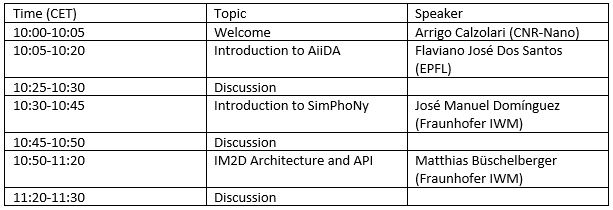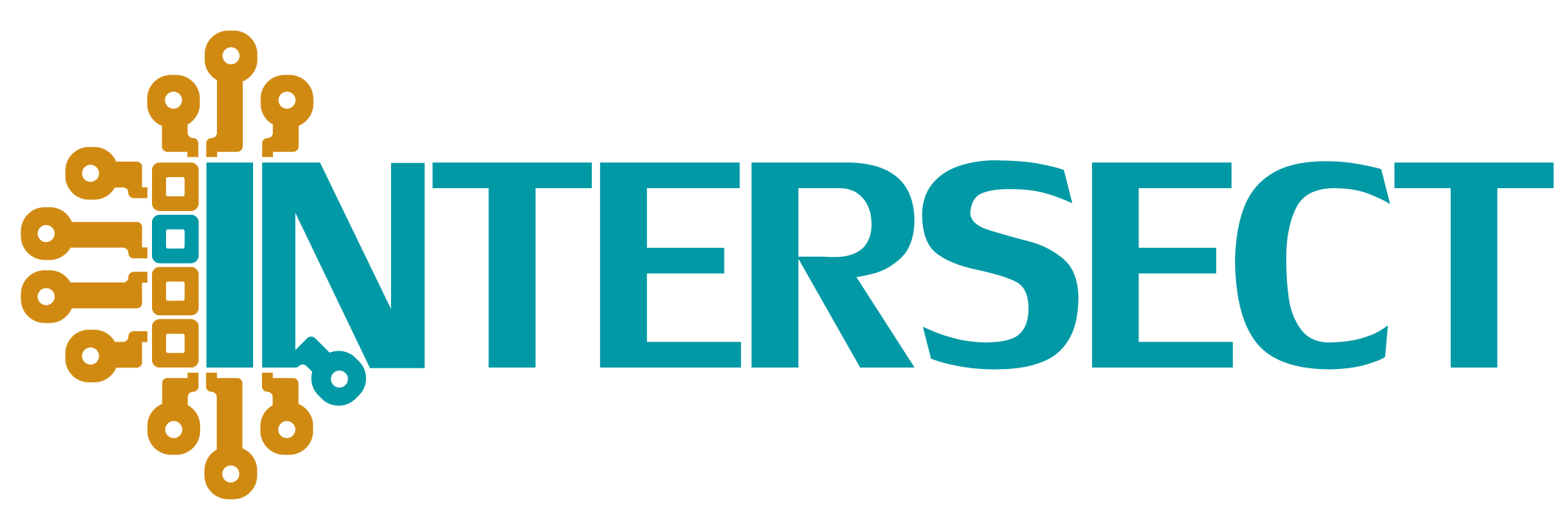
11 Mar TechCafé
Don’t miss the chance to meet our developers and discover with their help the IM2D-toolbox and the underlying technologies developed within the INTERSECT project.
They will walk you through the application code architecture and logics behind the ontologies applied in the interaction between SimPhoNy and AiiDA in the IM2D toolbox.
The TechCafé will be filled with practical API examples, hands-on tutorials, detailed explanations and an open discussions.
Register at the dedicated webpage.
The development of new materials for semiconductor and electronic device industries demands the availability of automated and easily programmable workflows for the optimization of electronic material properties with respect to their driving key performance indicators. This challenge requires customized process workchains towards the user modelling experience with guarantee for high quality and precise results. The adoption of FAIR principles across these workchains is also a practical necessity to ensure accessibility, traceability and interoperability of the underlying data. The later, can be facilitated by the use of standards provided in the form of ontologies that represent the knowledge about materials and respective properties in a formal, shared and explicit manner supported by formal logics.
Within the duration of the EU-funded INTERSECT-project, established research organizations in the fields of computational material science (EPFL, ICN2, CNR-Nano), material informatics (Fraunhofer IWM) and semiconductor industries (AMAT, IMEC, FMC) collaboratively developed an interoperable material-to-device simulation toolbox (IM2D) that offers process managers, electrical engineers and material scientists (modellers and experimentalists) the opportunity to retrieve data-on-demand simply by selecting the level of user experience and material of interest, whose unitcell is digitally defined through a Crystallographic Information File (CIF) from the Crystallographic Open Database (COD). The IM2D framework is based on Quantum Espresso and Siesta simulation codes, which are orchestrated by the open-source workflow manager AiiDA and semantically enriched by the ontology-driven environment provided by SimPhoNy. The Elementary Multiperspective Materials Ontology (EMMO), DCAT, IANA and DCTERM are among the standards used by IM2D to facilitate interoperability with the existing European materials modelling marketplaces (namely the MarketPlace), open translation environments (developed in the OntoTrans project) and the exchange of semantic data models with other open simulation platforms (see ReaxPro, and SimDOME).
AGENDA




Sorry, the comment form is closed at this time.